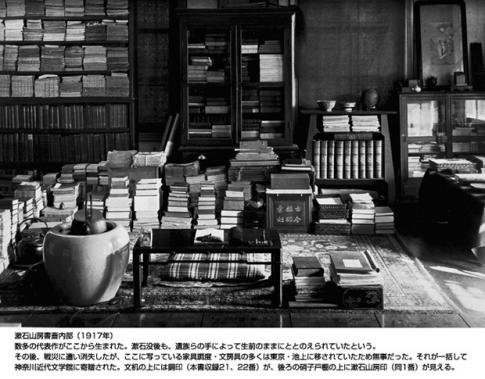* * *

Remote as the district was, however, many rich families had built their villas there. It was quite near the sea also, which was convenient for swimmers such as myself.
By Natsume Soseki (1867-1916)
It was at Kamakura, during the summer holidays, that I first met Sensei. I was then a very young student. I went there at the insistence of a friend of mine, who had gone to Kamakura to swim. We were not together for long. It had taken me a few days to get together enough money to cover the necessary expenses, and it was only three days after my arrival that my friend received a telegram from home demanding his return. His mother, the telegram explained, was ill. My friend, however, did not believe this. For some time his parents had been trying to persuade him, much against his will, to marry a certain girl. According to our modern outlook, he was really too young to marry. Moreover, he was not in the least fond of the girl. It was in order to avoid an unpleasant situation that instead of going home, as he normally would have done, he had gone to the resort near Tokyo to spend his holidays. He showed me the telegram, and asked me what he should do. I did not know what to tell him. It was, however, clear that if his mother was truly ill, he should go home. And so he decided to leave after all. I, who had taken so much trouble to join my friend, was left alone.
There were many days left before the beginning of term, and I was free either to stay in Kamakura or to go home. I decided to stay. My friend was from a wealthy family in the Central Provinces, and had no financial worries. But being a young student, his standard of living was much the same as my own. I was therefore not obliged, when I found myself alone, to change my lodgings.
My inn was in a rather out-of-the-way district of Kamakura, and if one wished to indulge in such fashionable pastimes as playing billiards and eating ice cream, one had to walk a long way across rice fields. If one went by rickshaw, it cost twenty sen. Remote as the district was, however, many rich families had built their villas there. It was quite near the sea also, which was convenient for swimmers such as myself.
I walked to the sea every day, between thatched cottages that were old and smoke-blackened. The beach was always crowded with men and women, and at times the sea, like a public bath, would be covered with a mass of black heads. I never ceased to wonder how so many city holiday-makers could squeeze themselves into so small a town. Alone in this noisy and happy crowd, I managed to enjoy myself, dozing on the beach or splashing about in the water.
It was in the midst of this confusion that I found Sensei. In those days, there were two tea houses on the beach. For no particular reason, I had come to patronize one of them. Unlike those people with their great villas in the Hase area who had their own bathing huts, we in our part of the beach were obliged to make use of these tea houses which served also as communal changing rooms. In them the bathers would drink tea, rest, have their bathing suits rinsed, wash the salt from their bodies, and leave their hats and sunshades for safe-keeping. I owned no bathing suit to change into, but I was afraid of being robbed, and so I regularly left my things in the tea house before going into the water.
Translated by Edwin McClellan, 1957




 del.icio.us
del.icio.us Digg
Digg

Post your comment